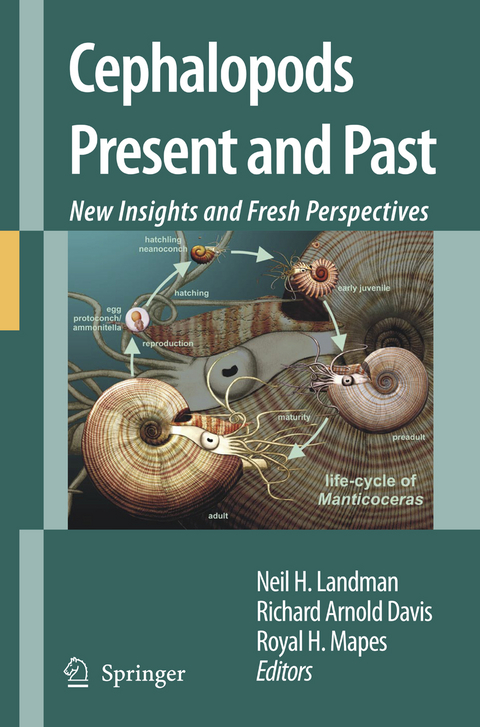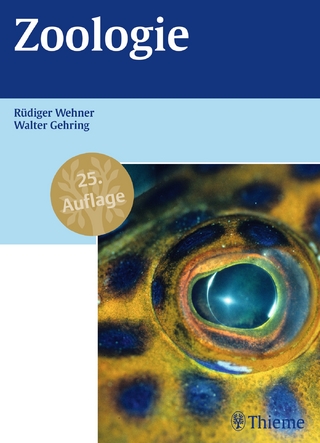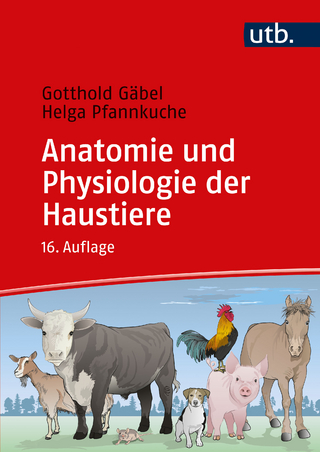
Cephalopods Present and Past: New Insights and Fresh Perspectives
Springer (Verlag)
978-94-007-9681-2 (ISBN)
Cephalopods are diverse, highly developed molluscs capable of swimming and jet propulsion. These animals are an important component of present-day marine ecos- tems throughout the world and comprise approximately 900 species. They also have an extraordinary fossil record, extending back to the Cambrian Period, with as many as 10,000 extinct species. Throughout their long history, they have experienced sp- tacular radiations and near-total extinctions. Because of their superb fossil record, they also serve as ideal index fossils to subdivide geologic time. This book touches on many of these themes, and it treats both fossil and present-day cephalopods. The chapters are outgrowths of presentations at the Sixth International Symposium “Cephalopods – Present and Past,” at the University of Arkansas in Fayetteville, September 16–19, 2004. The Symposium was organized principally by Walter L. Manger of the Department of Geology, University of Arkansas. The editors gratefully acknowledge Walter for his terrific job in putting together this symposium and for making it such an intellectual, and social, success. Other publications related to this Symposium include the abstract volume, assembled by W. L. Manger, and two fie- trip guidebooks, one written by W. L. Manger, and the other by R. H. Mapes. Because this symposium was held in North America, it honored four cephalopod workers from this continent: William A. Cobban (US Geological Survey, Denver, Colorado), Brian F. Glenister (University of Iowa, Iowa City, Iowa), William M. Furnish (University of Iowa, Iowa City, Iowa), and Gerd E. G.
Neil H. Landman: Curator-in-Charge, Invertebrate Paleontology, American Museum of Natural History; PhD, Yale University, 1982; Researcher in ammonoid paleobiology, systematics, and biostratigraphy. Richard Arnold Davis: Professor of Biology and Geology, College of Mount St. Joseph; PhD, The University of Iowa, 1968; Researcher in the biology and taphonomy of fossil and present day cephalopods. Royal H. Mapes: Professor Emeritus, Ohio University; PhD, The University of Iowa, 1977; Researcher in cephalopod systematics, phylogeny, taphonomy, and paleobiology
Phylogeny and Systematics.- Phylogenetic Practices Among Scholars of Fossil Cephalopods, with Special Reference to Cladistics.- Patterns of Embryonic Development in Early to Middle Devonian Ammonoids.- Conch Form Analysis, Variability, Morphological Disparity, and Mode of Life of the Frasnian (Late Devonian) Ammonoid Manticoceras from Coumiac (Montagne Noire, France).- GONIAT – The Current State of the Paleontological Database System on Paleozoic Ammonoids.- Ornamental Polymorphism in Placenticeras kaffrarium (Ammonoidea; Upper Cretaceous of India): Evolutionary Implications.- A Late Carboniferous Coleoid Cephalopod from the Mazon Creek Lagerstätte (USA), with a Radula, Arm Hooks, Mantle Tissues, and Ink.- On the Species Status of Spirula spirula (Linné, 1758) (Cephalopoda): A New Approach Based on Divergence of Amino Acid Sequences Between the Canaries and New Caledonia.- Morphology of Soft and Hard Tissues.- Understanding Ammonoid Sutures: New Insight into the Dynamic Evolution of Paleozoic Suture Morpholog.- Cameral Membranes in Carboniferous and Permian Goniatites: Description and Relationship to Pseudosutures.- Soft-tissue Attachment of Middle Triassic Ceratitida from Germany.- The Preservation of Body Tissues, Shell, and Mandibles in the Ceratitid Ammonoid Austrotrachyceras (Late Triassic), Austria.- Connecting Ring Ultrastructure in the Jurassic Ammonoid Quenstedtoceras with Discussion on Mode of Life of Ammonoids.- Jaws and Radula of Baculites from the Upper Cretaceous (Campanian) of North America.- Ultrastructural Analyses on the Conotheca of the Genus Belemnotheutis (Belemnitida: Coleoidea).- Biogeography, Biostratigraphy, Ecology, and Taphonomy.- New Data on the Clymeniid Faunas of the Urals and Kazakhstan.- Deformities in the Late Callovian (Late MiddleJurassic) Ammonite Fauna from Saratov, Russia.- Biogeography of Kutch Ammonites During the Latest Jurassic (Tithonian) and a Global Paleobiogeograph Overview.- Ammonite Touch Marks in Upper Cretaceous (Cenomanian-Santonian) Deposits of the Western Interior Sea.- Some Data on the Distribution and Biology of the Boreal Clubhook Squid Moroteuthis robusta (Verrill, 1876) (Onychoteuthidae, Teuthida) in the Northwest Pacific.- Habitat Ecology of Enteroctopus dofleini from Middens and Live Prey Surveys in Prince William Sound, Alaska.
| Erscheint lt. Verlag | 20.9.2014 |
|---|---|
| Zusatzinfo | XVII, 481 p. |
| Verlagsort | Dordrecht |
| Sprache | englisch |
| Maße | 155 x 235 mm |
| Themenwelt | Naturwissenschaften ► Biologie ► Zoologie |
| Naturwissenschaften ► Geowissenschaften ► Geografie / Kartografie | |
| Naturwissenschaften ► Geowissenschaften ► Geologie | |
| Naturwissenschaften ► Geowissenschaften ► Mineralogie / Paläontologie | |
| ISBN-10 | 94-007-9681-1 / 9400796811 |
| ISBN-13 | 978-94-007-9681-2 / 9789400796812 |
| Zustand | Neuware |
| Haben Sie eine Frage zum Produkt? |
aus dem Bereich


